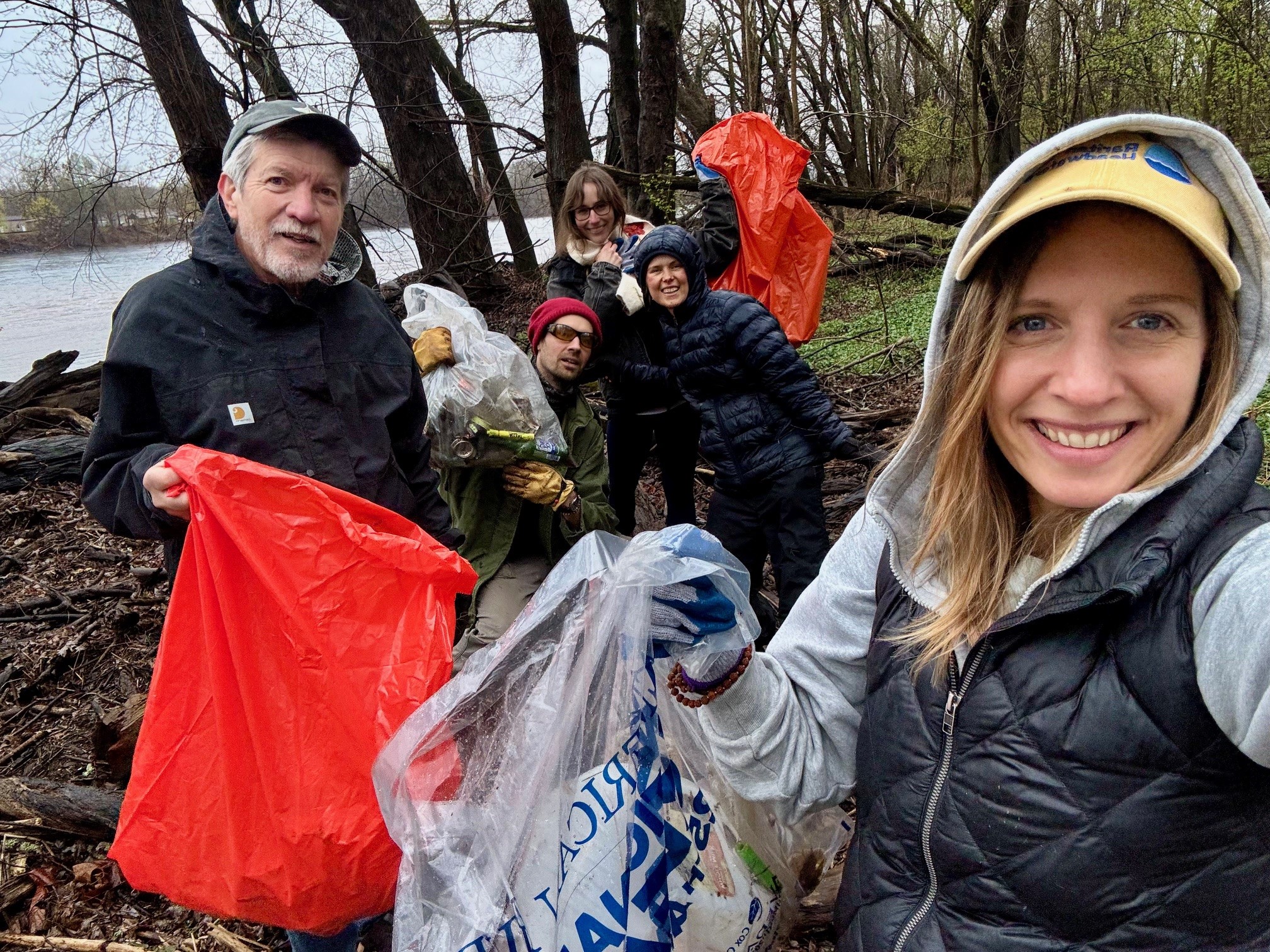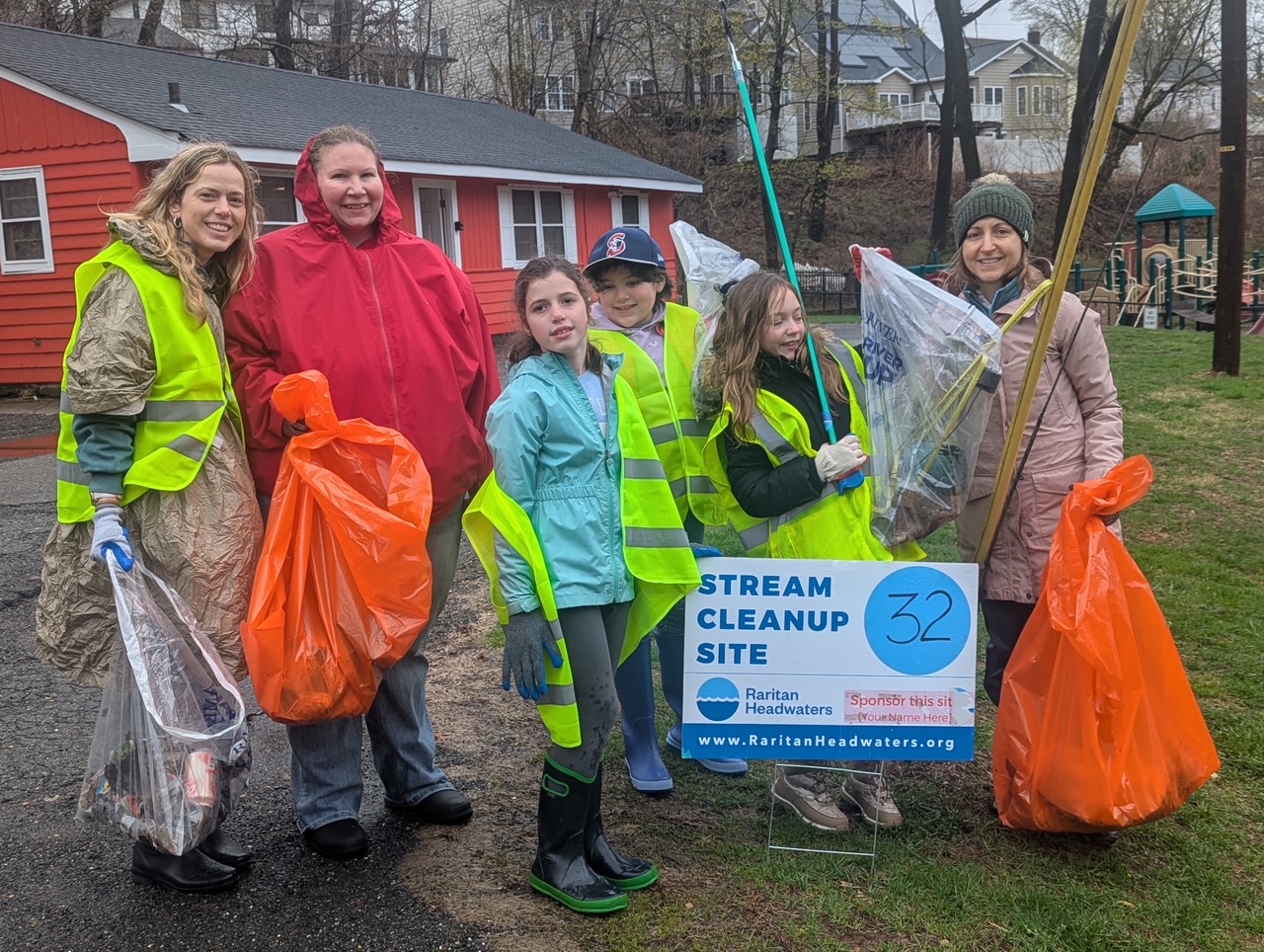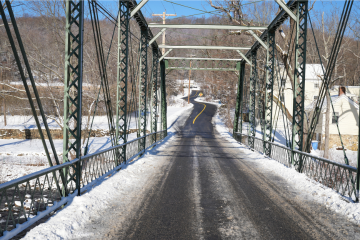 Despite some decidedly un-springlike weather on April 12 – including freezing rain, sleet, and snow – RHA’s dedicated teams of volunteers persevered to serve a greater cause: clearing local stream banks and parks of trash and litter.
Despite some decidedly un-springlike weather on April 12 – including freezing rain, sleet, and snow – RHA’s dedicated teams of volunteers persevered to serve a greater cause: clearing local stream banks and parks of trash and litter.
While we always hope for warm and sunny weather for our annual Stream Cleanup, we know that anything can happen, and we make the best of it. The heroes of the day were the hardy volunteers who didn’t allow the challenging weather to dampen their spirits.
This year’s Stream Cleanup involved 70 sites throughout the 470-square-mile upper Raritan River watershed in Hunterdon, Somerset, and Morris counties.
Cleanups at a few of the more northerly sites had to be postponed because volunteers couldn’t see trash on the ground due to the coating of snow. However, nearly 1,000 enthusiastic volunteers forged on at most cleanup sites, picking up 12.2 tons of trash and recyclables in just three hours!
As in the past, plastics in various forms — bottles, bags, food wrappers, bottle caps, straws, and more — made up the majority of trash items removed. The largest category was plastic bottles, with 5,162 collected. Plastic wrappers came in second, with 5,134 removed. Both are sources of microplastics polluting our water supplies and threatening the health of wildlife and humans!
Volunteers also removed 4,847 aluminum cans, 4,689 cigarette butts, 3,739 glass bottles, 2,824 plastic bags, 2,611 plastic bottle caps, 2,581 drink cups and lids, and 1,790 Styrofoam pieces. All items that could be recycled were put in separate bags from the trash.

Many larger items, such as car and truck tires, sports equipment, and construction materials, were found. Some of the more unusual items removed include: multiple toilets, a kayak, propane and nitrous oxide tanks, a box spring and mattress, shopping carts, and bicycles. Volunteers in Far Hills even found two stray dogs, which they turned over to officers at the Far Hills police station.
Our annual stream cleanups aim to remove trash and litter that could wash into the region’s rivers and streams, eventually making their way into Raritan Bay and the Atlantic Ocean. The event is held shortly before or during Earth Week, when public attention is focused on the need for a clean environment.
One of our guiding principles is that anything people put on the land ultimately ends up in the water. Trash and litter in streams and rivers degrade water quality and harm aquatic and marine life, which can become entangled or mistake items like plastic bags for food.
Stream Cleanup traditionally attracts a diverse group of enthusiastic volunteers, including individuals, families, scout troops, and various organizations from schools, churches, businesses, environmental commissions, and other civic groups.
This year was no exception! It was a wonderful example of civic engagement, as volunteers came together despite wet and chilly conditions to make a positive difference across the watershed. We are so grateful for their dedication to keeping their communities clean and our streams protected and healthy!



